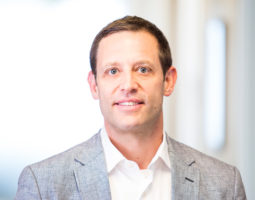ACCELERATE Global Health
At the University of Washington through the Global Health Discretionary Fund.
Give Now >Serving MD, MD/PhD, Res., Fel., PhD, PA-C (MEDEX), MA, MS, BS, PT, OT and P&O alumni, your UW School of Medicine Alumni Association is the place to connect with your classmates, your School and the next generation of medical professionals.

850 Republican Street, C-5
Seattle, WA 98195-8045
Alexander the Great was one of Judd Walson’s first and favorite teachers.
Not the Alexander the Great, the famed empire-builder in ancient Greece. Rather, a magician of the same name in Walson’s hometown in Tucson, Arizona.
 Walson, who got his first magic kit when he was 5, simply loved magic. He studied with Alexander, and by the age of 15, he was a traveling performer. During studies at Pitzer College in California, he took some time off to travel Europe as a magician, but after several months, the appeal of the nomadic life wore thin. He realized he wanted a career that would give back to society, and during a study-abroad program in Nepal, Walson fell in love with living and working in a new cultural setting.
Walson, who got his first magic kit when he was 5, simply loved magic. He studied with Alexander, and by the age of 15, he was a traveling performer. During studies at Pitzer College in California, he took some time off to travel Europe as a magician, but after several months, the appeal of the nomadic life wore thin. He realized he wanted a career that would give back to society, and during a study-abroad program in Nepal, Walson fell in love with living and working in a new cultural setting.
“My project was on studying access to medical care among Nepalese hill tribes, and we had a lot of interactions with patients coming down from very remote villages to seek medical care in the capitol,” Walson says. “I was working in those villages and saw that vulnerability — living conditions were poor, and illness and death were quite common. I stayed in Nepal for the next couple of years, and I had this epiphany that I needed to go to medical school if I was going to have the tools necessary to really create change.”
Today, Walson is a fellowship alumnus of the UW School of Medicine, a UW professor of global health, pediatrics, allergy and infectious diseases, and an adjunct in epidemiology. And he has swapped his fascination with magic for a fascination for global health, particularly with parasitic worms: He’s the chief investigator for DeWorm3, a five-year study on interrupting the transmission of intestinal parasitic worms, which are estimated to infect over 1.5 billion children and adults worldwide.
Transmitted through soil or water contaminated by feces, these parasites — roundworm, whipworm and hookworm — live in the small intestine and are particularly burdensome to children, affecting physical growth and cognitive development. The only way to stop the cycle of reinfection is to interrupt transmission. While previous efforts have focused only on children, DeWorm3’s approach involves broad-based, community-wide deworming.
Walson is also the co-director of the Childhood Acute Illness and Nutrition Network (CHAIN), which studies the complex factors that increase mortality, hospital readmission and poor recovery in acutely ill young children — issues that hit home when he became a father.
“For me, having kids made it much more real when I started talking about child survival,” he says. “We want to identify what makes children most vulnerable to early childhood death in low-income settings and try to figure out ways we can prevent or manage it.”
His work has attracted attention internationally, and Walson gave the Darwin Lecture for the Linnean Society and the Royal Society of Medicine in London in November. Still, he admits there are significant challenges in gaining momentum — and people’s attention — on global health issues.
“I think a feeling of paralysis is common. These problems are so big, why bother trying to resolve them? It seems like such a monumental task,” says Walson.
“I’m fortunate to have spent time working in Nepal, Kenya, Thailand and other places where I’ve seen change happen in real, meaningful ways,” he says. “It’s important to convey to people that this is worth doing, and it is possible to effect change.”